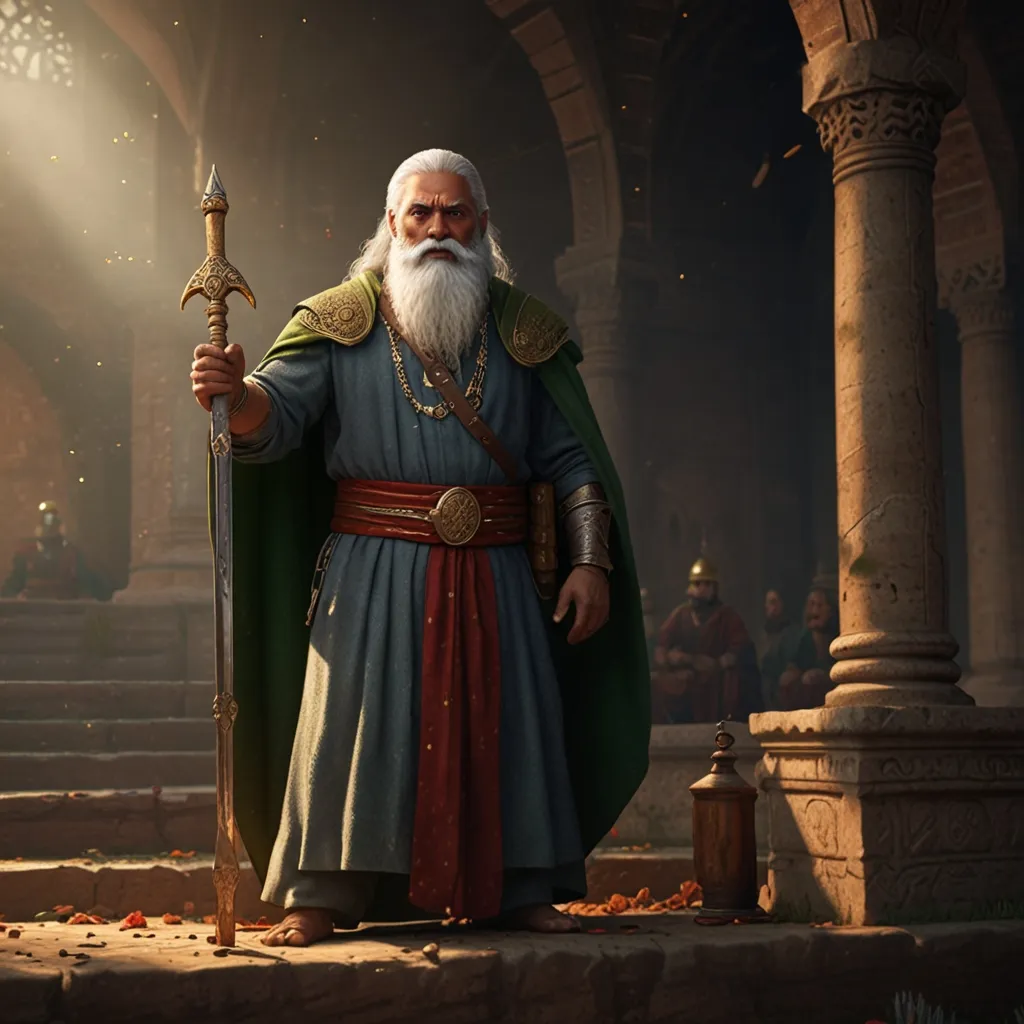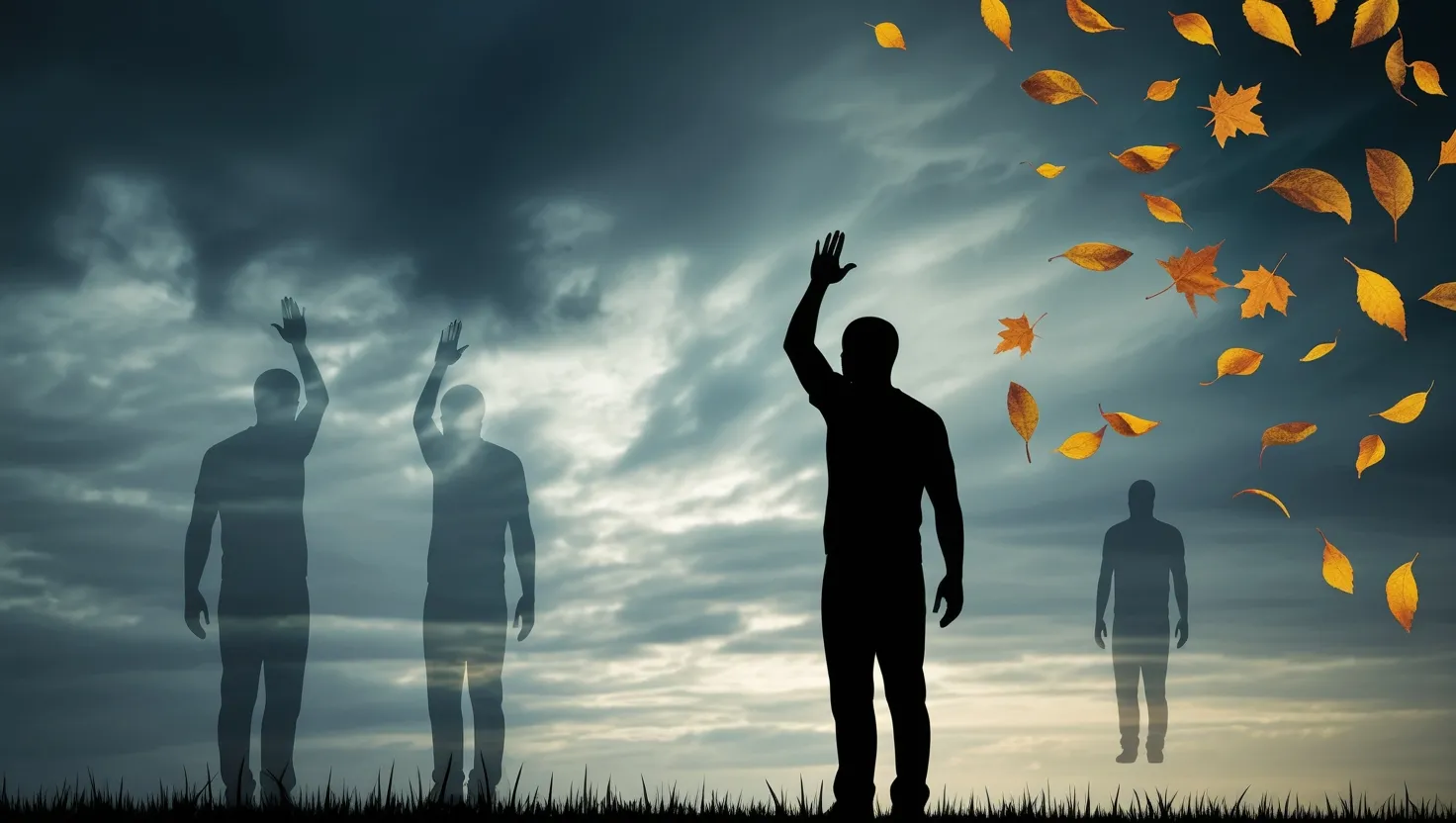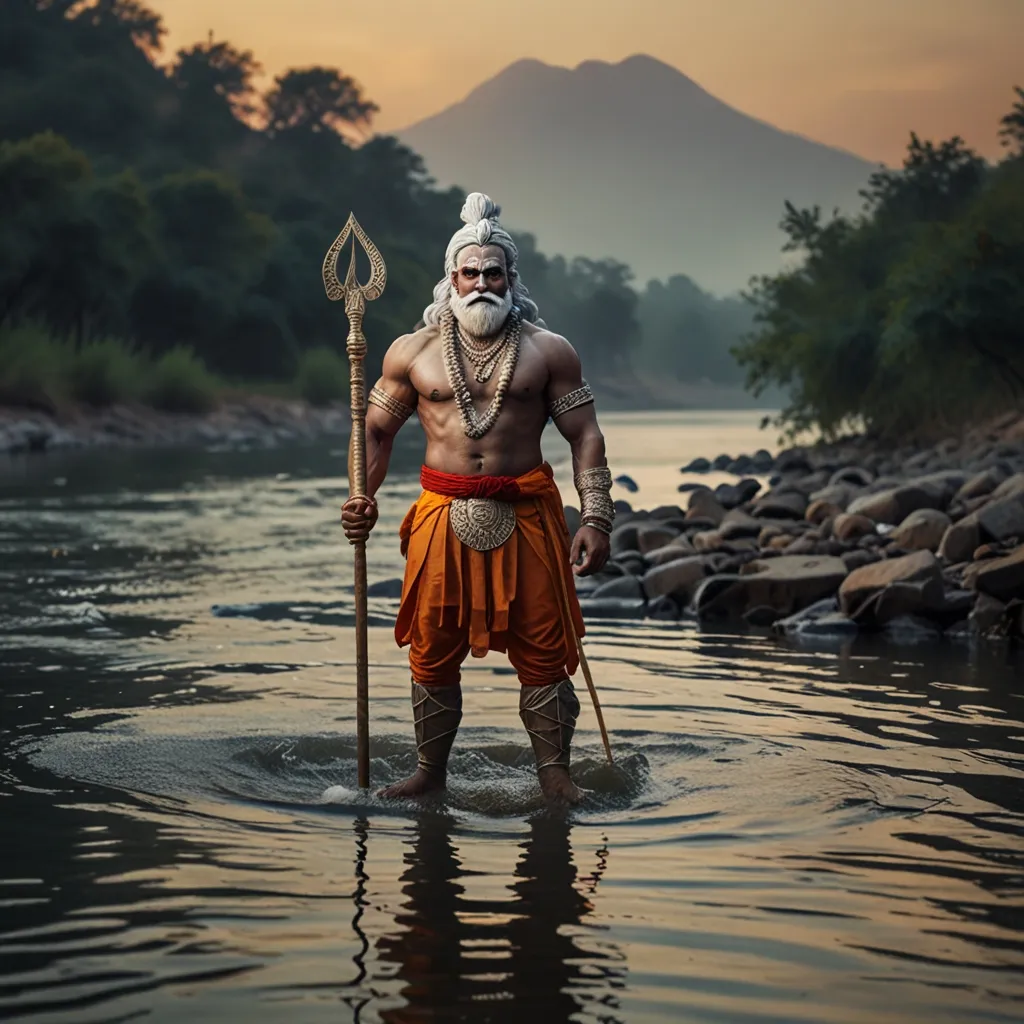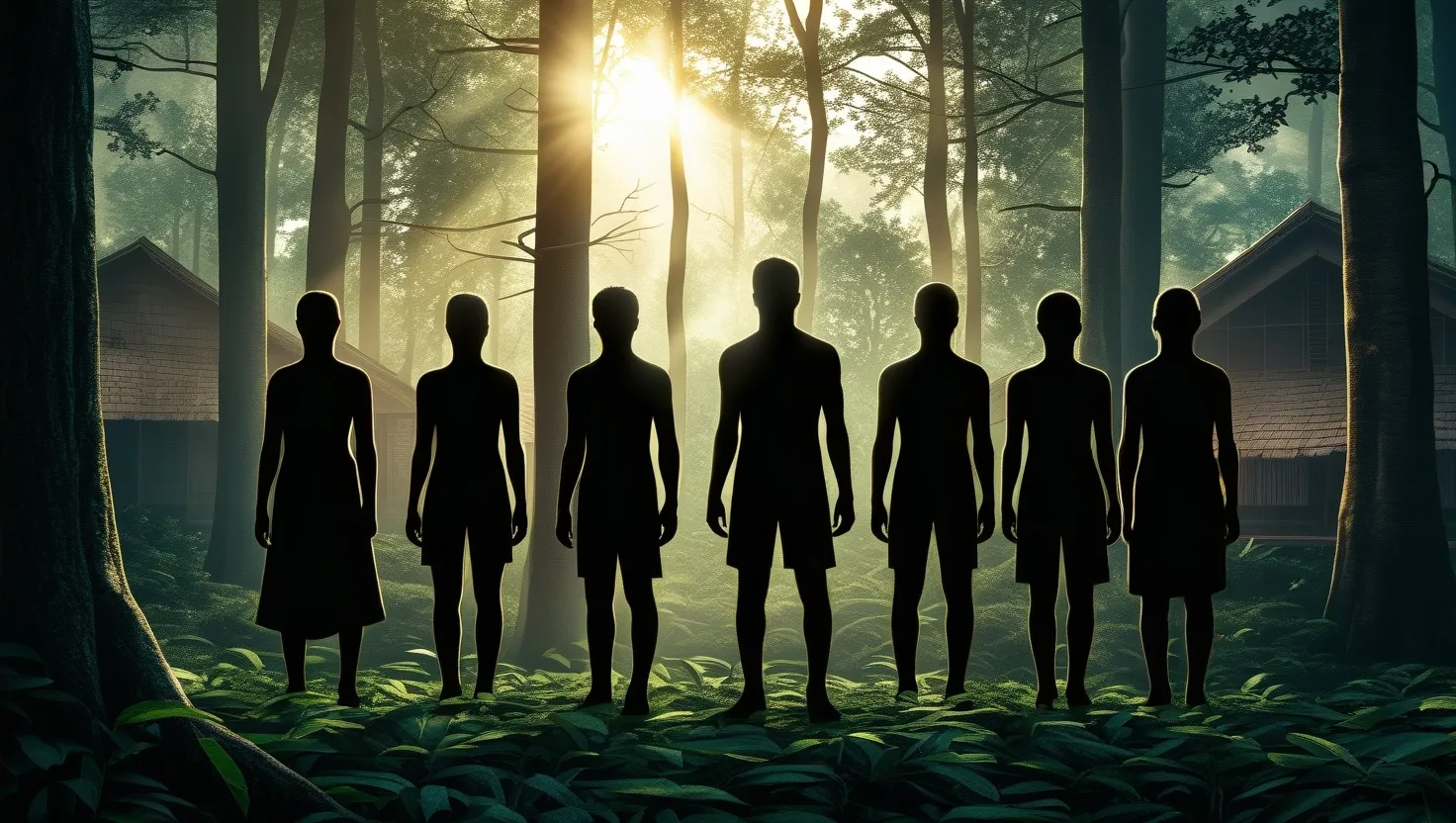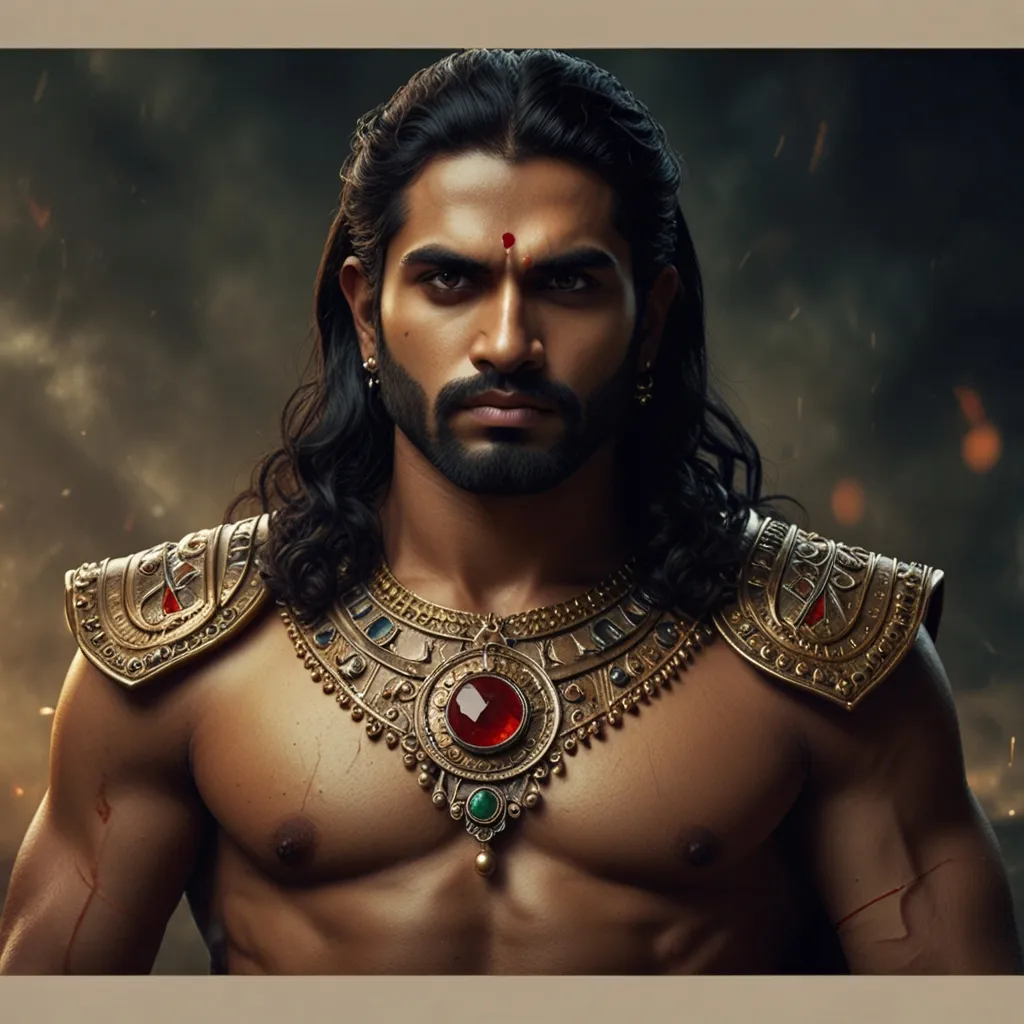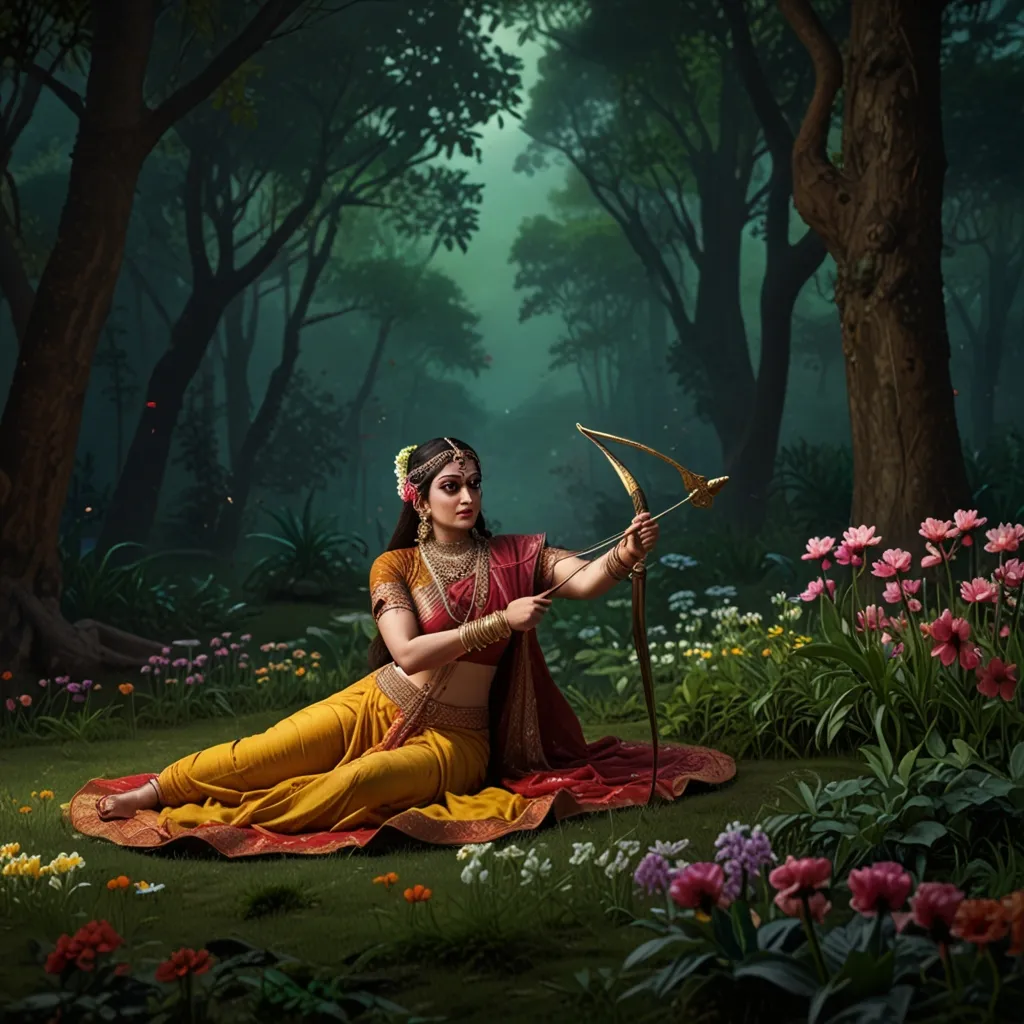In the mystical era of ancient India, there emerged a figure unlike any other—a man destined to shape the futures of many heroes. His name was Drona, and his journey is the stuff of legends. Born to the wise Sage Bharadwaja, Drona’s origins were nothing short of extraordinary.
Picture this: Sage Bharadwaja, immersed in his daily rituals by the Ganga River, suddenly spots an Apsara named Ghritachi. Her beauty was so mesmerizing that the sage, swept away by a sudden rush of emotions, released his vital fluid in a wooden vessel called a “drona.” This vessel became the cradle for his son, giving him the name Drona, which means “vessel” or “bucket”.
Growing up in his father’s peaceful ashram, Drona had a best friend in Prince Drupada, the heir to the kingdom of Panchala. These two were thick as thieves, with Drupada often promising to share his future kingdom with Drona. As time passed, Drona became quite the scholar, mastering the Vedas and other scriptures, and even the art of wielding celestial weapons, or astras, taught by Agnivesha Rishi.
Drona tied the knot with Kripi, the daughter of Saradwata Rishi, and they were blessed with a son named Ashwatthama. Fun fact: Ashwatthama was born with a neighing sound, random but true. While Drona’s family life brimmed with joy, his friendship with Drupada sadly took a turn for the worse. Drupada, now a king, conveniently forgot all his promises to Drona. When Drona, enduring some rough times, went to him seeking help, he got nothing but a slap in the face—metaphorically, of course, but it hurt all the same.
Fueled by heartbreak and a desire for revenge, Drona set out on a quest. He heard that Parshuram, a sage with significant clout, was distributing his wealth to Brahmins. By the time Drona reached him, the giveaways were over. But Parshuram, impressed by Drona’s plight, handed him an invaluable gift—his weapons and the know-how to use them. Loaded with this powerful arsenal, Drona’s reputation as a warrior and teacher quickly spread.
Drona eventually found his true calling in Hastinapura, the Kuru kingdom’s capital. He ended up at his brother-in-law Kripa’s place, who was the royal teacher of the Kuru princes. A random day changed everything: the princes were trying to fish a ball out of a well, failing miserably. Observing their futile attempts, Drona smoothly retrieved the ball by shooting an arrow, leaving the princes in jaw-dropping awe.
As tales of this epic rescue reached Bhishma, the mighty grand elder of Hastinapura, he immediately knew Drona was the man they needed. Drona was brought to the palace and entrusted with the task of training the Kuru princes—including the famous Pandavas and Kauravas—in the art of war. Even Karna, the adopted son of Radha and a frequent rival of Arjuna, was among his students.
Training wasn’t just about swinging swords and shooting arrows; Drona instilled discipline, duty, and the essence of dharma—living the righteous way. But let’s not forget, Drona had a score to settle. He made his students pledge their support to help him even the score with Drupada. Arjuna, ever the committed disciple, vowed to fulfill his wish.
Life took a sharp turn for Drona during the Mahabharata War. Despite his close ties with the Pandavas, he sided with the Kauravas. This decision, layered with loyalty to the kingdom and his lingering vendetta, shaped the course of his destiny. As the second commander-in-chief of the Kaurava army, he led them with formidable skill. But his demise was steeped in trickery; Dhrishtadyumna, born to assassinate Drona, executed him while he meditated on the battlefield.
Drona’s legacy is vast and complex. He’s remembered not just as a teacher and a warrior but as a symbol of the nuanced human experience, embodying both virtue and vice. His life story underscores the intricate nature of dharma and the eternal struggle between duty and desire.
Even today, India commemorates his impact on teaching and coaching by awarding the “Dronacharya Award” to the country’s best coaches. It’s a nod to his enduring influence and an appreciation for his contributions that ripple through the corridors of history, inspiring countless generations.
